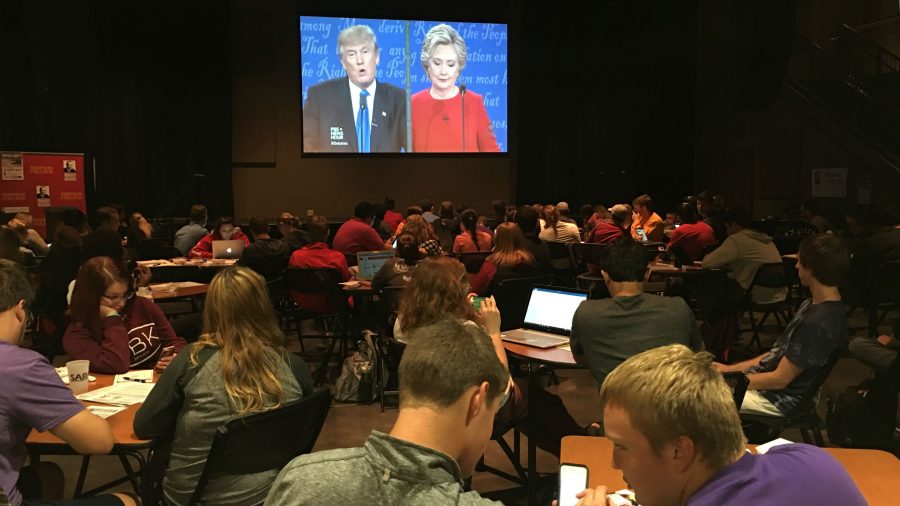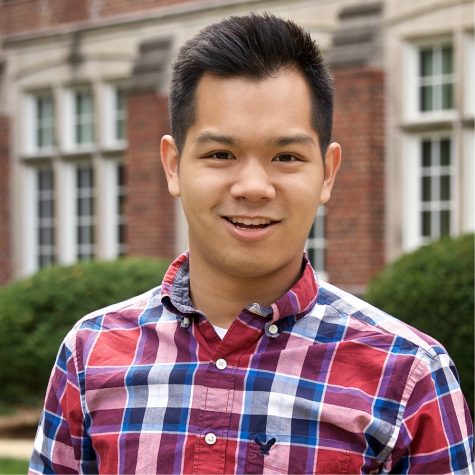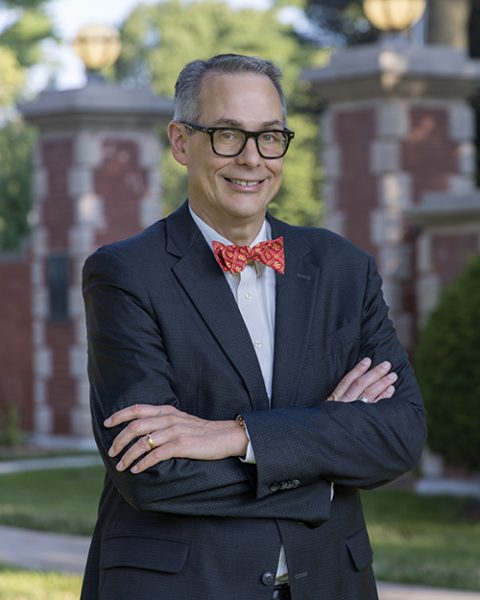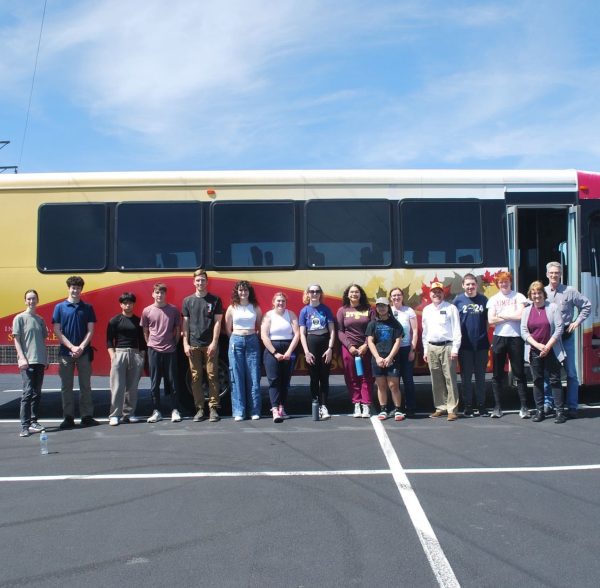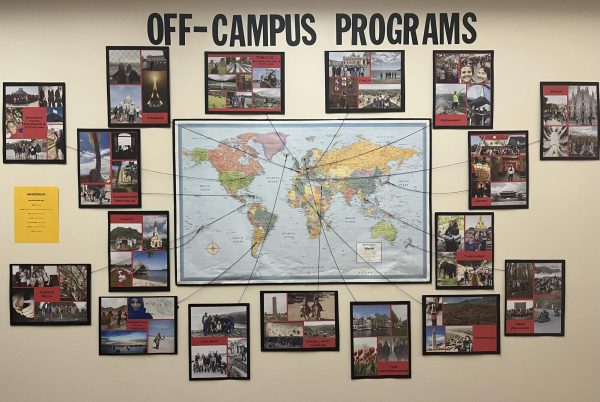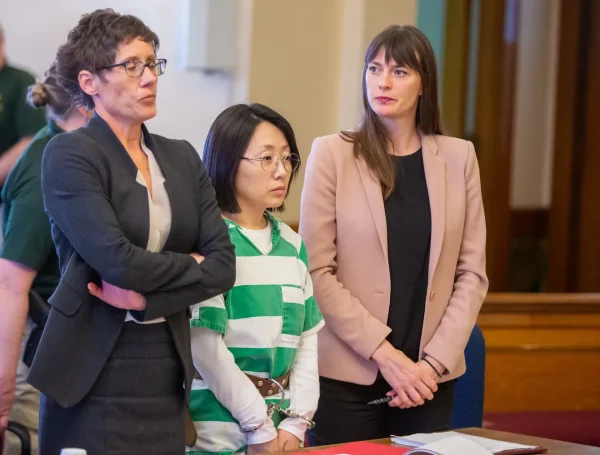Presidential debate proved unconvincing, yet entertaining
September 28, 2016
INDIANOLA, Iowa — Have you ever seen a 90-minute horror movie that received rave reviews before its release but then flopped at the box office?
Check yes if you watched first presidential debate Monday night between Hillary Clinton and Donald Trump along with more than 80 million Americans who tuned in to the ungory yet frightening showdown.
In the 18 months leading up to the debate, moderated by “NBC Nightly News” anchor Lester Holt, political analysts said it would be characterized by how candidates presented themselves – not necessarily their stance on a particular issue or even policy details.
Who would appear more presidential?
“I thought expectations were pretty high for both of them,” said Kedron Bardwell, professor of political science at Simpson College, who attended a debate watch party in Kent Campus Center hosted by the John C. Culver Public Policy Center along with about 150 students, faculty and staff.
The debate was ruled by one-liners as the two repeatedly clashed over the economy, race relations in the United States, the threat of ISIS and tax cuts for the wealthy.
Clinton one-upped Trump with her zingers – a feature typically associated with the aggressive business mogul and former reality TV star, Bardwell said.
Trump took a swing at Clinton for staying off the campaign trail which quickly backfired when the Democratic nominee shot back: “I think Donald just criticized me for preparing for this debate. And yes, I did. And you know what else I prepared for? I prepared to be president. And that is a good thing.”
The comment drew applause from an audience that had been instructed to remain quiet.
It also appealed to sophomore Rae Konz, who said Clinton had won the debate based on her experience and preparedness.
“Donald Trump’s answers seemed like he didn’t prepare at all, and Hillary knows her policies, especially foreign policy,” Konz said.
Clinton said her plan to fight ISIS is posted on her website, which Trump lamented could be a ploy to tip off America’s biggest foreign threat.
Though Clinton has the upper hand on foreign policy experience, the fighting remained largely about issues that have haunted both candidates on the campaign trail and in the media.
For Trump, that includes the so-called birther conspiracy and his refusal to release his tax returns; for Clinton, that means her use of a private email server while serving as Secretary of State.
“I thought Hillary Clinton wrecked him,” junior Ryan Policheri said. “She brought a lot of his foul business practices up, and I thought that was a good strategy.”
Jazmín Lopez, a Fulbright teaching assistant from Mexico, weighed in on the debate, saying she believed the candidate who won the debate had the most potential to make progress.
“I don’t think Trump was rational,” Lopez said. “That was the first impression that I had. I wanted him to give more detail. The most important issue, for me, was taking care of citizens and making more progress in the country. So Hillary Clinton won the debate.”
And one of the most talked-about issues during the debate was racial divide in the United States.
“They started talking about gun control which, I mean, is a part of it,” Konz said. “In general, our country is fueled by hate right now, and a lot of it has to do with what our presidential candidates are saying.”
Senior Taylor Ashman, who said Trump won Monday night’s debate, agreed that racial injustice, in addition to religious intolerance, seems to be at the forefront of the election and were propellers for opening the discussion.
“As an American, I think it’s important that everybody is equal,” Ashman said. “Everybody has rights, and that’s why I love America.”
Though Ashman’s views align more along with Trump’s, his attitude reflects a significant portion of voters who said they’re voting out of dissatisfaction for a candidate.
“Personally, I don’t know who I’d vote for because of the debate,” Ashman said. “You have two people who are not really suited for this job. They’re too focused on what they can say about each other and how they can point out flaws of each other rather than what’s important for our country and where we need to go as a nation.”
The sentiment suggests the debate watch party served primarily as entertainment as opposed to swaying a well-informed audience.
“The trick with debates sometimes is you don’t know all the background to led to that comment or argument or policy exchange,” Bardwell said. “It seems like the students got the background. They got the jokes, so to speak.”
The turnout for Monday night’s debate watch party was higher than expected, which could be attributed to Simpson’s efforts to increase civic engagement and a high interest level in a drama-filled election.
“I think students like the idea of watching the debate in a big group,” said Seth Andersen, director of the John C. Culver Public Policy Center. “You get more out of the experience than just trying to stream it on your laptop or something. That’s not as entertaining because, as much as we want them to be about policies, they’re also a big show.”
Simpson also has sky-high registration rates, with about 90 percent of returning students registered to vote, Andersen said. The problem, though, is that students who move within the last year forget to re-register and show up at the wrong polling place on Election Day.
The debate, which is just over five weeks away from Nov. 8, may not have had as much influence as some might speculate, though the race is a virtual dead heat.
The latest CNN Poll of Polls released early this weekend found Trump with a 2-point lead over Clinton, 44 percent to 42 percent.
“Debates have a short-term impact usually, and events can overtake or change the dynamic after that,” Bardwell said.
Trump has room for improvement, Bardwell said.
“I think Clinton won this one, but Trump’s going to have a chance to recalibrate and maybe take a different approach,” Bardwell said. “But on this one from style and substance, Clinton comes out on top.”
The John C. Culver Public Policy Center will host another debate watch party Oct. 9.



